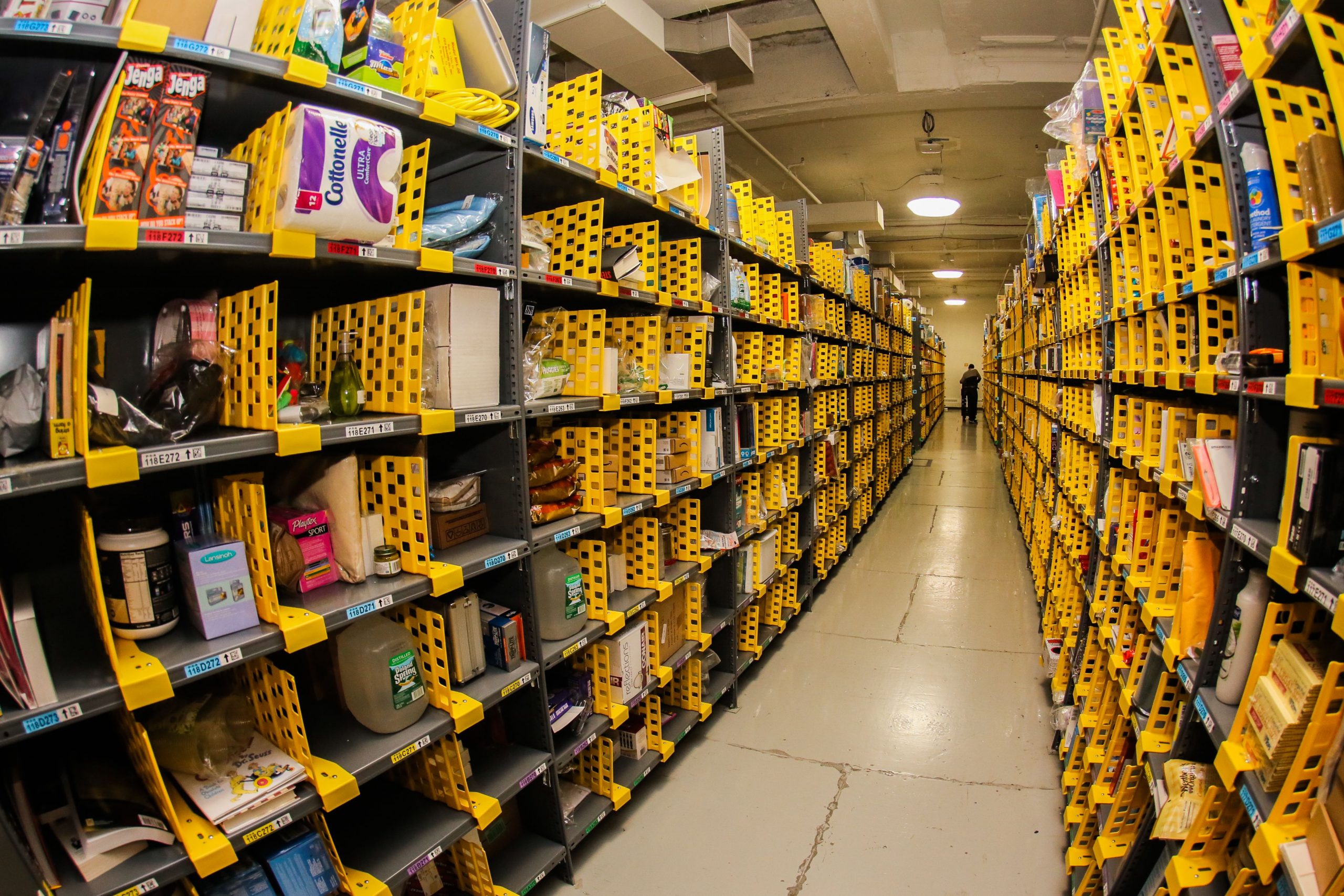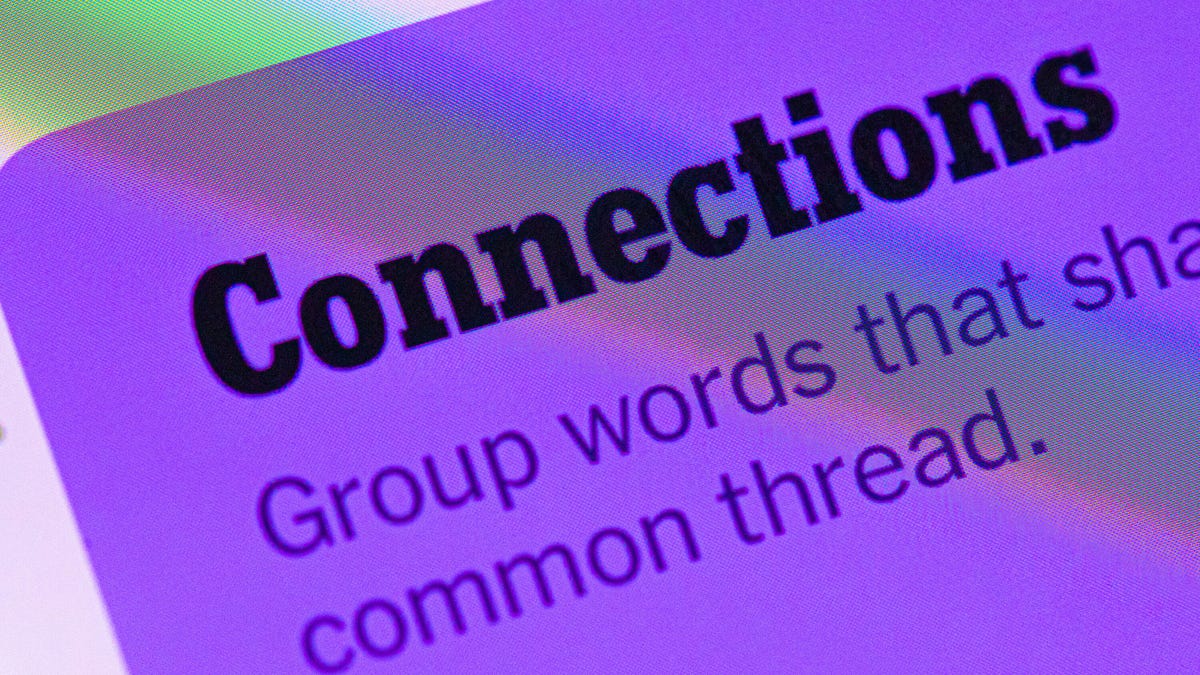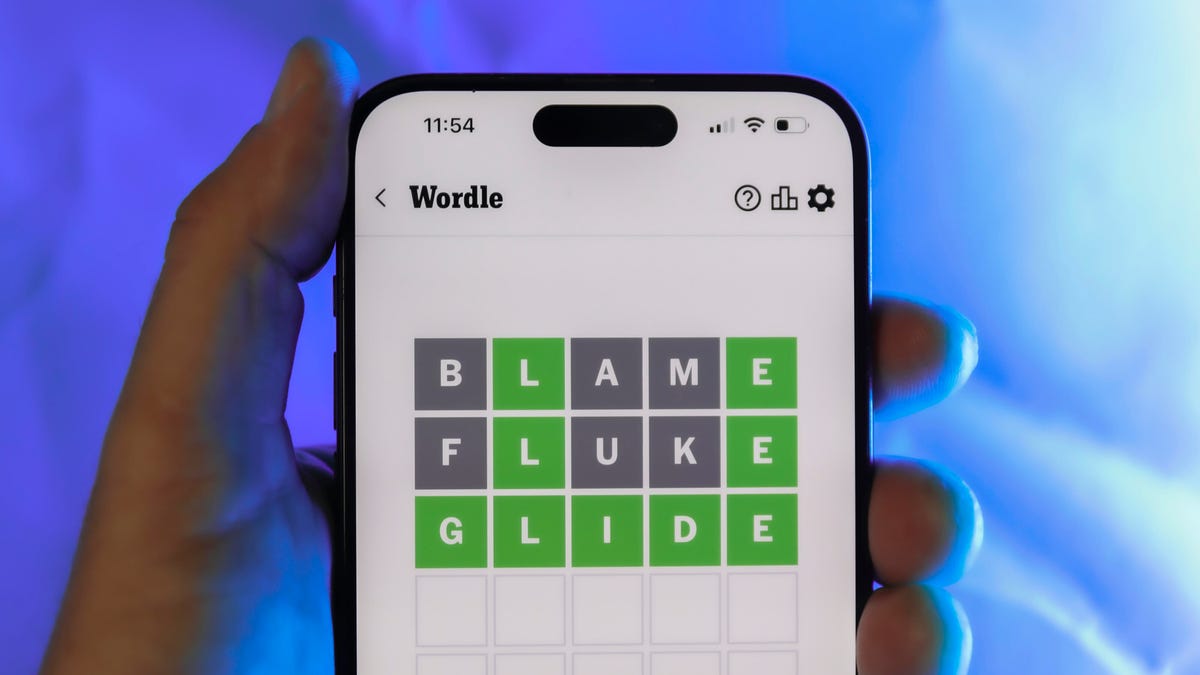Technologies
This hack gives you Black Friday savings year round on Amazon. Here’s what to do
You can save money and still get free two-day shipping. We’ll show you how.

Amazon’s «Black Friday-worthy deals» are here. The deals are coming in close competition with Target’s Deal Days that will start next week. You can save on toys, electronics and more. But there’s a hack that helps you get savings like these year round on Amazon. The best part is that Prime members can still get free two-day shipping (one of the membership perks), too.
It all boils down to picking the right quality grade, being open to unfamiliar brands and the possibility of not having a warranty. Plus, you have to be careful not to be redirected to the Amazon home page while looking for deals. It’s tricky but we’re here to help.
We’ll show you the ins and outs of Amazon Warehouse Deals and how to score the best savings since Amazon’s gotten quite good at hiding stuff. Once you learn how, you’ll never want to pay full price again. And here’s the rundown of everything Amazon announced at its most recent product launch so you can keep an eye on savings for these new items, too.
Look for the Amazon Warehouse Deals page
I begin nearly all of my Amazon searches on the Amazon Warehouse Deals landing page, because it cuts out full-price listings almost entirely so you mostly just see the discounted items (I’ll explain the one exception shortly). To get there, open Amazon using either a desktop browser or the Amazon mobile app and search for «Amazon warehouse» or «warehouse deals.»
Rather than getting a list of search results like normal, you should see a screen that looks a lot like the main Amazon search page, with a search bar, categories and so on. From there you can browse categories like Computers & Tablets, Kitchen or Home Improvement (click these and other links in this story to see actual, current Warehouse Deals listings) or you can search for more specific items just like you would on the regular Amazon homepage, except the results will be discounted, sometimes heavily.
This quick and easy approach works best if you’re not in the market for something in particular — say you’re just looking for gift ideas or killing time during your lunch break. It can be a lot of fun to scroll through the various categories looking for stuff that pops out at you. If you’re shopping for something more specific, however, keep reading for pro tips on how to find it discounted using Amazon Warehouse Deals.
Why Amazon Warehouse stuff is so cheap
Just like other major retailers such as Walmart or Target, Amazon takes in a lot of customer returns, which it can no longer sell as new-in-box, regardless of why the buyer sent the item back or whether it’s even been opened.
That’s why everything Amazon Warehouse sells is listed as used, even if the product itself has never been touched. Regardless of its condition, used stuff is just worth less — sometimes a lot less. And that’s good for you.
Amazon Warehouse Deals work for almost anything
Everything I’ve shown you so far works great so long as you’re a little flexible about what you’re looking for. If, on the other hand, you’re shopping for something really specific — like, say, an Otterbox case for your iPhone 12 ($829 at Amazon) — it can be frustrating to limit your search to just Warehouse Deals listings. You might turn up nothing at all relevant.
Whenever you head to Amazon to buy an exact product, go ahead and search for it just like you would otherwise. There’s a way to check and see if a discounted Warehouse Deals version is available from any Amazon listing.
First, pull up the item you want to buy just as you normally would on Amazon, but don’t add it to your cart just yet. Scour the page, keeping your eyes peeled for words like «New & Used,» «Buy Used,» «New & Used Offers» or just plain «Used.»
Usually there’ll be a price listed, too, representing the cheapest option available (but not including tax or shipping costs). If you’re not having any luck finding the link and you’re on a computer, try using your browser’s «find» function (usually Control-F on Windows PCs and Command-F on Macs) to look for these keywords.
Once you locate the link, look for items with «Amazon Warehouse» listed as the seller and an Amazon Prime logo displayed near the price. If Amazon Warehouse has more than one of the same item in stock, there will sometimes be a separate listing for each, especially if the items are in different conditions.
Be careful of Amazon’s redirecting trick
Another thing to keep an eye on — make sure you always go back to the Amazon Warehouse Deals splash page before starting a different search. Otherwise, if you just search for another item from the search bar at the top of the page, Amazon might bounce you out of Warehouse Deals and into the full site.
Same goes for «recent searches.» If you searched for, say, «bunny slippers» across all of Amazon, then went to Warehouse Deals and searched for «banana slippers,» then decided you definitely want bunnies over bananas, don’t select «bunny slippers» from the drop-down menu that appears when you select the search bar. Those recent searches will search not just the same terms but the same Amazon sections as the original search. In other words, it’ll yank you out of Warehouse Deals and back to the land of full-price slippers. Instead, type the search in again on the Amazon Warehouse Deals main page.
You’ll find the best deals if you’re not loyal to one brand
Say you’ve been thinking about getting a new cordless drill for a while. You don’t care who makes it, you just don’t want to spend a lot of money. Or a new dog leash, robot vacuum, whatever. You’re not brand-loyal, just cost-conscious. That’s the perfect time to search from inside Amazon Warehouse Deals.
Do it just like you would on the full Amazon site — type your search terms in the dialog box, then select «Search.» Searching from the Warehouse Deals main page, your results won’t be cluttered with a bunch of full-price listings.
Except for one caveat: Amazon’s «sponsored» listings. Unless you have an ad blocker that specifically removes Amazon’s paid listing results (I love the Amazon Ad Blocker Chrome extension), you’ll still see full-priced items peppered among the discounts. These undiscounted listings look almost identical to Warehouse Deals, except they’re labeled «Sponsored.» Sneaky, I know, but that’s why I’m warning you.
How Amazon Warehouse returns work
Of the dozens (if not hundreds) of Amazon Warehouse listings I’ve bought over the years, I only ever ran into problems with a handful of them — a Bluetooth adapter for my car that would randomly shut off, a wireless router that didn’t broadcast any signal, a very well-worn puppy harness with dog hair stuck to it; stuff like that.
Whenever that happens, I just return the item like I would any defective product, then order another one. Sure, it’s a bit more hassle, but considering the hundreds, if not thousands of dollars I’ve saved over the years this way, it’s worth the extra effort.
Truth is, most Amazon Warehouse items are in perfect working order — many haven’t even been so much as pulled out of their packages yet, like the Ring 2 Doorbell I got for $65 (it retailed for $139) or the Baby Trend stroller I paid $81 for instead of $110. Even for stuff that has been taken out of the box, Amazon puts everything through what the company calls a «rigorous 20-point inspection process,» after which each item is given a quality grade and priced accordingly.
Some items may have cosmetic damage or be missing parts, accessories, instructions or assembly tools, but Amazon will detail any damage to the product or packaging, as well as any missing element along with the condition, so you won’t be surprised. For example, I knew when I ordered a 100-watt Pyle amplifier for $29 that the accessories were loose and the amp would come repackaged. Who cares? I saved close to $15.
What the different Amazon grades mean
Amazon has five different grades it assigns to items it resells. Here they are with brief explanations of what Amazon means by them.
Renewed: This is the highest grade an Amazon Warehouse item can receive and is on par with what other companies might call «refurbished.» Renewed items have been closely inspected and tested and determined to look and function like new and come with a 90-day replacement or refund guarantee. The «refreshed» Roku Express Plus I ordered had never even been opened.
Used, Like New: No noticeable blemishes or marks on the item itself, although the packaging may be damaged, incomplete or missing altogether. All accessories are included, and any damage to the package will be described in the listing. The box for the Like New Evenflo locking gate I saved $6 on was a little banged up, but I’ve seen way worse on Walmart’s shelves. The gate itself was flawless.
Used, Very Good: The item has been lightly used, with minor visible indications of wear and tear, but is otherwise in good working order. Packaging might be damaged, incomplete or the item repackaged. Any missing accessories will be mentioned in the listing. I saved $4 on a Very Good Bosch Icon wiper blade that had, like, one scuff on it.
Used, Good: Item shows moderate signs of use, packaging may be damaged or the item repackaged and it could be missing accessories, instructions or assembly tools. Another Bosch Icon wiper blade I got was only in Good shape, but I saved $15 on that one, and honestly I can’t tell one from the other now that they’re on my car.
Used, Acceptable: Very well-worn, but still fully functional. Major cosmetic defects, packaging issues and/or missing parts, accessories, instructions or tools. I got an Echo Dot for $23 that was considered Acceptable. I think it has a scratch near the power port, but now it’s on my nightstand, where it does its job well, and mostly in the dark, for less than half the cost of a new one.
How to choose the right quality grade
If there are multiple listings with different grades available for the product I want to buy, I think about what I’m going to use it for. If it’s something purely functional and I couldn’t care less about its cosmetic condition, like hair clippers or a cordless drill, I’d go with the cheapest option, period.
If it’s something I’d display, like a kitchen mixer, end table or wall clock, I read the descriptions a little more closely and look for items that are rated Very Good or Like New.
But honestly, a low-nough price on just about anything can woo me into putting up with some scratches or scuffs. Not to mention that in my experience Amazon tends to err on the side of caution, marking items as Good or Acceptable that the average person would consider Very Good or Like New.
Beware, you may not have a warranty with your Warehouse Deal
One of the benefits of purchases made through Amazon Warehouse is that Amazon’s standard 30-day replacement or refund return policy applies, which comes in handy if you wind up with a lemon. Amazon does caution that because these products are considered used they don’t come with the manufacturer’s original warranty.
That said, if the product hasn’t already been registered in someone else’s name, there’s a decent chance any issues you run into past Amazon’s 30-day window can be resolved with a call to the manufacturer.
Amazon Prime members still get free shipping
Subscribing to Amazon Prime won’t get you a bigger discount on Amazon Warehouse Deals, but you’ll get free shipping just as you would for any other Prime-eligible item, which is why I still pay for Prime even though most of my purchases come from Amazon Warehouse.
Most of the stuff I’ve bought through Amazon Warehouse ships and arrives within the same one- to two-day window I get with new items, although some orders do take longer to fulfill. If that’s the case, the extra handling time is usually indicated on the listing, so I know what to expect.
Quick tips about buying from third-party sellers
While wading around in the listings looking for Amazon Warehouse Deals you may have discovered even more discounted listings not sold by Amazon. What you’ve stumbled upon are items sold by third-party retailers whose only relationship with Amazon is that their items are for sale on Amazon’s marketplace, much like eBay.
Amazon’s buyer protections lag considerably behind eBay’s, however. eBay guarantees customers their money back in the event of a dispute, and although Amazon will ultimately do the same, its process is a bit more convoluted, so proceed with caution. Generally, if I can’t find a good enough deal on Amazon Warehouse, I’ll tab over to eBay and look for the item there instead. eBay is a little more transparent about both its vendors and the merchandise they sell. If I’m going to buy garage-sale used as opposed to Amazon’s never-opened used, I prefer eBay.
Technologies
Tom Cruise and Brad Pitt Trade Blows in Latest AI Slop Video, and Hollywood Won’t Stand for It
While some Hollywood icons are feeling doom and gloom over the AI-generated clip, labor unions are fighting back with legal threats.

Brad Pitt and Tom Cruise are trading blows in a viral AI-generated clip on social media, sparking backlash from the film industry. Chinese company ByteDance’s new video generation model, Seedance 2.0, allowed people to create fictional videos of real likenesses with short prompts. Irish filmmaker Ruairi Robinson used two lines to generate the clip of Pitt and Cruise fighting.
If ByteDance sounds familiar to you, it’s because the company also owns TikTok internationally, though it recently sold its US ownership of the social media and video-sharing platform to US companies. Oracle, MGX and Silver Lake each hold a 15% stake.
The actors in this latest viral AI slop video still don’t look like perfect re-creations — close-up shots of the fake Brad Pitt’s face, especially, have an «uncanny valley,» dreamlike AI look where the cuts blend into his flesh a little too smoothly. However, a CNET survey from earlier Tuesday showed that while 94% of US adults believe they encounter AI slop on social media, just 44% say they’re confident they can tell real videos from AI-generated ones.
One of the most inflammatory parts of the Pitt-Cruise video is the dialogue, as the computerized facsimiles of the actors fight over a supposed assassination plot regarding Jeffrey Epstein, the convicted sex offender who maintained ties to rich and powerful people worldwide. The two actors’ likenesses became a vehicle to push conspiracy theories that have been picking up steam as the millions of pages of redacted emails, receipts and other documents that make up the Epstein files continue to trickle out of the US Department of Justice.
Hollywood is fighting back as AI-generated content consumes and spits out actor likenesses and copyrighted content alike. Major studios and their labor forces alike have united to push back against the precedent set by the viral AI video.
According to The Hollywood Reporter, the Motion Picture Association demanded that ByteDance «immediately cease its infringing activity» through Seedance. SAG-AFTRA, the labor union that represents Hollywood performers, released a statement on Friday saying it «stands with the studios» in condemning the Seedance video generation model.
The Screen Actors Guild specifically pointed to Seedance’s unauthorized use of members’ faces, likenesses and voices as a threat that could put actors out of work.
«Seedance 2.0 disregards law, ethics, industry standards and basic principles of consent,» the actors’ guild said in its statement.
Representatives for the MPA and SAG-AFTRA didn’t immediately respond to a request for comment.
Similar videos generated by Seedance have depicted Star Wars characters dueling with lightsabers as well as Marvel superheroes Spider-Man and Captain America brawling. Disney issued a cease-and-desist order to ByteDance on Friday in response to these videos, which it alleges constitute copyright infringement, according to the BBC.
A representative for ByteDance didn’t immediately respond to CNET’s request for comment, but issued a statement to the BBC saying it is «taking steps to strengthen current safeguards as we work to prevent the unauthorized use of intellectual property and likeness by users.»
Following the viral incident, ByteDance updated its tool to prevent people from uploading images of real people for AI-generated content, but it remains to be seen how effective that policy will be. Certainly, it won’t curb the output of videos depicting fictional masked or anthropomorphic characters like Spider-Man or Mickey Mouse.
As AI models continue to create mediocre copies of cultural icons, this won’t be the first — or last — legal battleground for AI video generation.
Technologies
Today’s NYT Connections Hints, Answers and Help for Feb. 18, #983
Here are some hints and the answers for the NYT Connections puzzle for Feb. 18 #983.

Looking for the most recent Connections answers? Click here for today’s Connections hints, as well as our daily answers and hints for The New York Times Mini Crossword, Wordle, Connections: Sports Edition and Strands puzzles.
Today’s NYT Connections puzzle was great fun for me, as I’m the co-author of two pop-culture encyclopedias, one about the 1970s, and 1980s and the other about the 1990s. Two of the categories are retro-themed! Read on for clues and today’s Connections answers.
The Times has a Connections Bot, like the one for Wordle. Go there after you play to receive a numeric score and to have the program analyze your answers. Players who are registered with the Times Games section can now nerd out by following their progress, including the number of puzzles completed, win rate, number of times they nabbed a perfect score and their win streak.
Read more: Hints, Tips and Strategies to Help You Win at NYT Connections Every Time
Hints for today’s Connections groups
Here are four hints for the groupings in today’s Connections puzzle, ranked from the easiest yellow group to the tough (and sometimes bizarre) purple group.
Yellow group hint: Farrah hair.
Green group hint: Totally tubular!
Blue group hint: Bock-bock!
Purple group hint: Can refer to a dairy product or a cosmetic.
Answers for today’s Connections groups
Yellow group: Retro hair directives.
Green group: Retro slang for cool.
Blue group: Chicken descriptors.
Purple group: ____ cream.
Read more: Wordle Cheat Sheet: Here Are the Most Popular Letters Used in English Words
What are today’s Connections answers?
The yellow words in today’s Connections
The theme is retro hair directives. The four answers are crimp, curl, feather and tease.
The green words in today’s Connections
The theme is retro slang for cool. The four answers are bad, fly, rad and wicked.
The blue words in today’s Connections
The theme is chicken descriptors. The four answers are bantam, crested, free-range and leghorn.
The purple words in today’s Connections
The theme is ____ cream. The four answers are heavy, shaving, sour and topical.
Technologies
Today’s Wordle Hints, Answer and Help for Feb. 18, #1705
Here are hints and the answer for today’s Wordle for Feb. 18, No. 1,705.

Looking for the most recent Wordle answer? Click here for today’s Wordle hints, as well as our daily answers and hints for The New York Times Mini Crossword, Connections, Connections: Sports Edition and Strands puzzles.
Today’s Wordle answer is a word I thought I’d seen in Wordle before, but I guess not. The letters aren’t super common, so it may take a few guesses. If you need a new starter word, check out our list of which letters show up the most in English words. If you need hints and the answer, read on.
Read more: New Study Reveals Wordle’s Top 10 Toughest Words of 2025
Today’s Wordle hints
Before we show you today’s Wordle answer, we’ll give you some hints. If you don’t want a spoiler, look away now.
Wordle hint No. 1: Repeats
Today’s Wordle answer has no repeated letters.
Wordle hint No. 2: Vowels
Today’s Wordle answer has two vowels.
Wordle hint No. 3: First letter
Today’s Wordle answer begins with M.
Wordle hint No. 4: Last letter
Today’s Wordle answer ends with L.
Wordle hint No. 5: Meaning
Today’s Wordle answer can refer to an important or powerful person.
TODAY’S WORDLE ANSWER
Today’s Wordle answer is MOGUL.
Yesterday’s Wordle answer
Yesterday’s Wordle answer, Feb. 17, No. 1704 was SQUAD.
Recent Wordle answers
Feb. 13, No. 1700: MOOCH
Feb. 14, No. 1701: BLOOM
Feb. 15, No. 1702: SKULL
Feb. 16, No. 1703: ROOST
-

 Technologies3 года ago
Technologies3 года agoTech Companies Need to Be Held Accountable for Security, Experts Say
-

 Technologies3 года ago
Technologies3 года agoBest Handheld Game Console in 2023
-

 Technologies3 года ago
Technologies3 года agoTighten Up Your VR Game With the Best Head Straps for Quest 2
-

 Technologies4 года ago
Technologies4 года agoBlack Friday 2021: The best deals on TVs, headphones, kitchenware, and more
-

 Technologies5 лет ago
Technologies5 лет agoGoogle to require vaccinations as Silicon Valley rethinks return-to-office policies
-

 Technologies5 лет ago
Technologies5 лет agoVerum, Wickr and Threema: next generation secured messengers
-

 Technologies4 года ago
Technologies4 года agoOlivia Harlan Dekker for Verum Messenger
-

 Technologies4 года ago
Technologies4 года agoiPhone 13 event: How to watch Apple’s big announcement tomorrow
